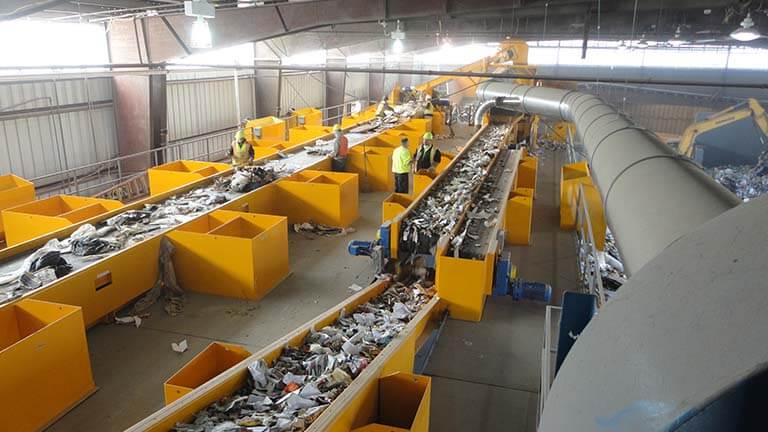
More and more people and industries are currently becoming aware of the optimal life cycle of different materials and their waste, which has given rise to the need to take into account environmental requirements. Of course, the world of construction has not escaped this reality.
Construction technology has made significant advances in recycling in recent years. Every day, a series of new applications or even processes are created and implemented, which have the concepts of reuse, reduction, and recycling in the construction processes.
The purpose of these advances is to be able to create constructions that respond to various problems:
- Sustainability
- Social commitment
- Technical and technological needs
- Environmental wellness
- Reduction of waste and materials
- Balanced use of resources
But before delving into the importance of recycling, it is essential to know what this really is and how it differs from reducing or reusing materials.
Recycling vs. Reuse vs. Reduction
These terms are closely related at a concept level. However, they have subtle differences that are important to know in order to make fair use of resources and, of course, dispose of them properly.
Recycling of building materials
Recycling is an operation where all the waste materials generated or used are transformed again into new materials or usable products to fulfill their original purpose or even fulfill other objectives.
Reuse of construction materials
In this type of operation, the products or components that have been used in the construction process are usually used again for the purposes for which they were originally created.
Reduction in the use of construction materials
This operation consists of substituting some materials with others to reduce the amount of waste generated; some scraps are usually used to fulfill the substitution’s useful purpose. This helps not only to reduce the waste generated but also to save on the cost of the materials invested.
For this, it is essential to carry out an analysis of how resources can be used more rationally, to avoid wasting materials unnecessarily.
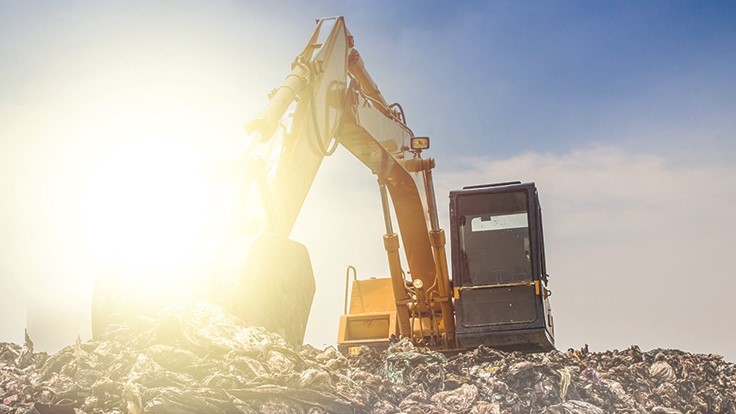
Why is the recycling of materials in a construction important?
It is becoming more and more common to find recycling options in construction materials. This increase in the popularity of this operation is due to many important factors. Construction companies that have shifted their focus around recycling used materials have found it to be a great option due to factors such as:
Decrease construction expenses
When constructions are carried out, the expenses can reach excessive amounts due to the purchase of new materials for the works. It is common to expect that the materials used in this process are of high quality and durable, which will guarantee that the building is stable and resistant over time.
However, thanks to the recycling of the materials used, it is possible to reduce construction costs. The need to buy new materials is mainly reduced by recycling previously used materials and making them useful again.
Additionally, recycling also helps reduce expenses related to transportation for waste disposal. It is much cheaper to recycle them than to dispose of these materials, which maximizes profits and lowers costs.
Helps conserve energy
Energy is a very useful resource, but it is also somewhat limited, so it is vital to be able to conserve the different sources that produce this energy. By recycling various construction materials, such as asphalt or concrete, you can help save energy safely.
These materials can be repackaged and used again in construction, helping conserve energy and avoid wasting resources.
Decrease the amount of waste in landfills
One reality that cannot be denied is that landfills around the world are slowly filling up. This means that it is necessary to start thinking about a new option to be able to get rid of all the construction materials that have been used.
Recycling is the perfect answer to this problem since by reducing or avoiding the generation of new waste with construction; the environment is respected. This approach is also truly an economic boom, as operating costs associated with building new projects and works are minimized.
You can generate additional income
Recycling not only helps save money by reducing the expenses associated with purchasing new materials, but it is also possible to sell and generate additional new income. Many construction companies have set up recycling plants for construction waste.
When recycled, these residues can be used in the manufacture of other products such as cement, tiles, iron plates, plaster, bricks, and others. These products can be sold, which translates into more income for the company, but not only that but also new job opportunities will be created for the community.
An advantage over the competition
Construction companies that recycle materials can have a significant advantage over the competition. In the construction world, competitiveness is really high, so if a company cannot only minimize costs related to operations but also to maximize its profits, it will undoubtedly be able to stay ahead of its competitors.
This is because by saving money on the purchase of new materials, these funds can be used on other fronts such as the commercialization of the company’s services and its products, so they can attract a more significant number of customers and maintain their relevance within the construction sector.
Not forgetting that being a company with a good environmental protection policy can be valued in a much more positive way by the community, making many prefer to work with this company than with others.
In conclusion, materials are very important for the development of any construction work, and their use cannot be dispensed with. Then, by not being able to avoid their consumption, it is possible to save a large sum of money, energy, and even increase income, with something as simple as the proper recycling of all these materials.
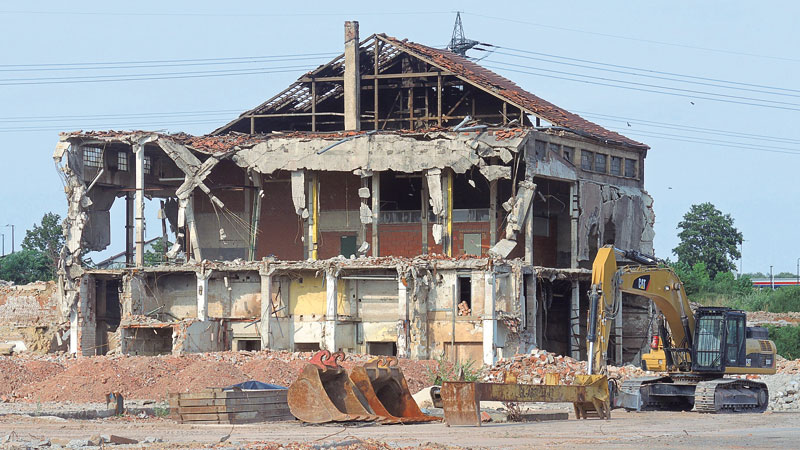
What materials can be recycled within a building?
Earth, concrete, metals, glass… They are some of the primary materials that can be recycled within the construction sector. These are some of the materials that can be recycled and how they do it:
Earth
When any construction is going to be done, one of the first steps is removing the earth. Hydraulic excavators are used for this. This can create a large amount of excess soil, but this does not have to be a problem.
Excess soil from any excavation within the construction can be recycled without a problem since it does not usually have significant pollutants. Although, if necessary, in some cases, carry out an additional grinding process to be able to achieve the fineness of the grains suitable for other projects.
The recycling of these lands reduces carbon emotions by reducing the transport processes associated with the transfer of these wastes and avoiding causing damage to the surrounding landscape.
Concrete
Concrete is one of the most frequent wastes in the construction area, and it is usually found in the form of rubble, debris, unused concrete remains, and others. To be able to recycle concrete, it is necessary to carry out a previous treatment where the concrete is crushed until its particles reach the appropriate thickness for use. Additionally, this material must be purified to eliminate the remains of contaminating elements, which will improve its performance.
After this treatment, it is possible to reuse this concrete in bases, retaining walls, reconstruction, gravity walls, fillings, or other construction stages. With recycling, the useful life of concrete is prolonged in various projects.
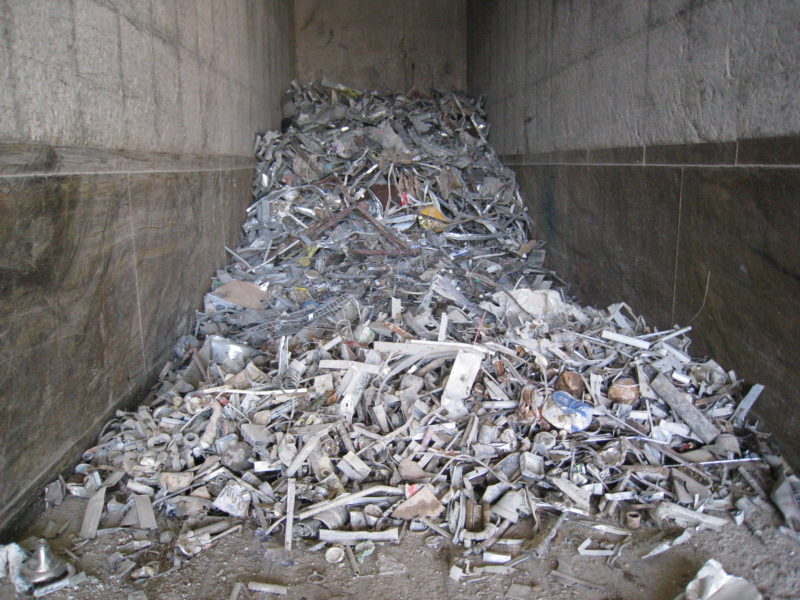
Metals
Metals are among the most recycled materials in the construction sector due to a large number of benefits they bring at an environmental, economic, and social level. Recycling metals is a relatively simple activity, saving a significant amount of money on virgin raw materials for construction.
Among the metals that are usually recycled, the following stand out:
- Steel: This is one of the most common metallic materials in constructions; therefore, it generates the most waste, so its recycling is essential. Steel has the particularity that it can be recycled in an unlimited way without losing its quality. This dramatically reduces the waste generated in construction since steel is, without a doubt, one of the most recycled materials in the world today.
- Copper wire: Another of the most recycled metals today because it is 100% recyclable in an unlimited way. This means a great advantage since recycling copper consumes up to 85% less energy than producing it from zero. Copper is highly valued for being an electrically conductive material, so its primary use is electrical wiring, which implies that recycling is essential for modern life.
- Aluminum: Aluminum is a very light material. It can be recycled unlimitedly; aluminum has an excellent natural resistance to corrosion, among other properties, which is very important for the construction industry. In this industry, almost 90% of aluminum is recycled, which is very important for the environment, as it reduces carbon emissions by approximately 9.8 tons.
- Bronze: This metal consists of an alloy of copper and tin. With the recycling of bronze, these components can be conserved for other different uses. It is usually recovered from some decomposed industrial machinery and ornaments and is recycled to create new elements for buildings.
- Iron: usually used in trellises. Its recycling is simple and can be done indefinitely without losing its properties. Like all metals, they are recycled through smelting, reducing carbon emissions by up to 6.7%.
- Brass: Recycling brass can help save significant sums of money, and it is effortless to recycle it since it is only enough to melt it to obtain a new metal with the same properties. For this reason, the leftover shavings from the use of this metal are usually collected to process and recycle it.
In conclusion, the recycling of metals in the construction sector helps to reduce the current pollution levels of the environment since, in general, it reduces air, water pollution, and the generation of waste by up to 70%. In fact, Nashville Recycling has seen their number as high as 90%.

Glass
Glass is another widely used material in construction, and it generates a great deal of waste. The positive is that this material can be recycled 100% indefinitely. Its recycling saves a large amount of energy because its recycling uses lower temperatures than creating it from scratch, which reduces polluting emissions to the environment.
On the other hand, it allows saving in raw materials, since recycling one ton of glass saves 1.2 tonnes in raw materials to make new glass. Recycled glass can have the same properties, strength, and use as any other glass.
Wood
In construction, it is common to use wood in some processes. These woods are often reused until they lose their properties or characteristics. When they are past their useful life, they can be processed to be used as a natural fuel.
Asphalt
When the floors of some constructions are paved, unused residues usually remain, and the same happens when these pavements are removed for other works. This waste can be recycled for use in new asphalt projects. For this, they are crushed and mixed with other materials that allow them to extend their useful life.
Plastic
It is possible to recycle a large part of the plastics used in construction through melting, which allows creating new materials for construction sites. This recycling dramatically reduces environmental pollution and energy consumption.
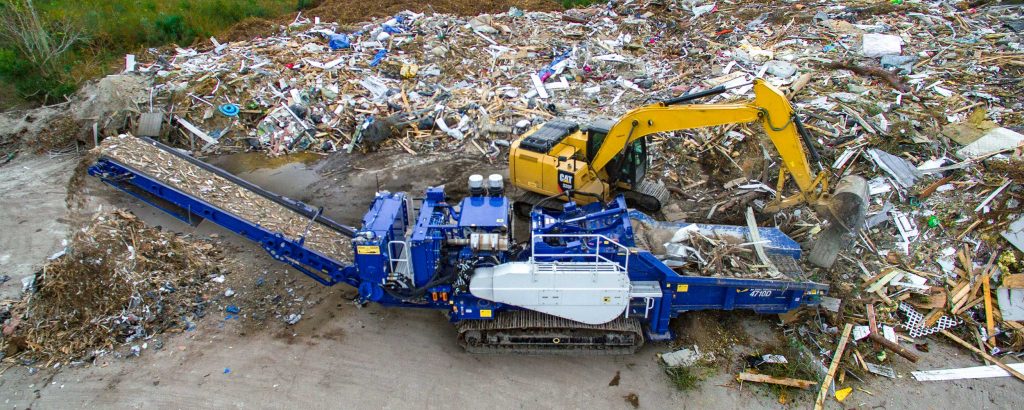
Benefits of recycling in construction
As you have seen, most of the materials used in the construction process can be recycled, and doing so is not only a responsible act but also brings a series of benefits to this sector:
- You save on energy consumption
- You decrease the consumption of limited natural resources
- You reduce the environmental impact generated by construction
- You reduce the generation of waste
- You save money on buying new materials
- You can increase your income
- It is a highly sustainable practice
- You improve the public image of your company
When you decide to take the step to recycle construction materials, you can use the advice of companies that are responsible for proper waste management, which will help you make fair use of materials properly.
By using recycled materials, you can also ensure that the materials you use in construction have a good quality and the exact properties you need for different buildings.
Having experts in the area to advise you will also help you save time in the process since you will be able to learn the proper differents recycling techniques and how this will help you save time and resources.